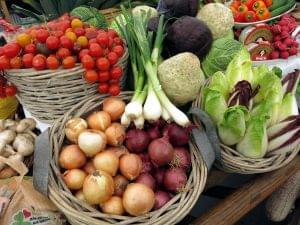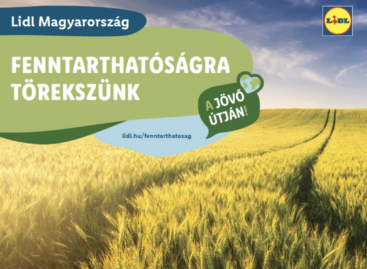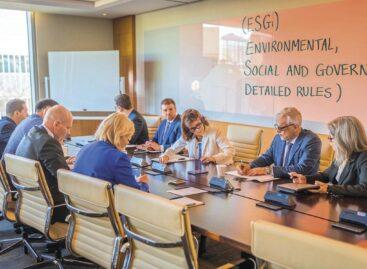Hungary stands for making food systems sustainable
In the context of the 50th meeting of the Committee on World Food Security, Oszkár Ökrös, the Deputy State Secretary responsible for international relations at the Ministry of Agriculture, presented the key points of the national agenda aimed at making the Hungarian food system sustainable and the results achieved so far.

(Photo: Pixabay)
Hungary’s national agenda covers important areas such as sustainable consumption, reducing the impact of food systems on the climate and biodiversity, improving agricultural techniques, creating a circular economy, and strengthening the role of communities, said the Deputy State Secretary of the Ministry of Agriculture. From the document defining both short-term and long-term goals, Oszkár Ökrös singled out successful national programs such as the Food Rescue Center or the Local Markets infrastructure and asset development tender. He explained that one of the new, long-term tasks is the adoption of the Digital Food Industry Strategy (DÉS), which would increase research, development and innovation activities in the food industry for the development and application of new digital solutions. The implementation of DÉS will contribute to the digitization of food industry plants and the improvement of their production efficiency, as well as the reduction of waste and food loss.
Hungary, like most countries, is exposed to the effects of climate change
Adapting to the effects and preparing for them are therefore inevitable. Nature-based solutions play a prominent role in our strategic planning, as the protection, restoration and sustainable management of ecosystems not only plays a key role in climate protection and biodiversity preservation, but also contributes to water and food security. In this context, the finalization of Hungary’s National Biodiversity Strategy until 2030 is an important step forward, said Oszkár Ökrös. At the end of his speech, the deputy state secretary emphasized that we can only speed up the achievement of sustainable development goals with joint cooperation and commitment.
AM
Related news
The majority of Hungarians spend less than 50 thousand forints on Christmas gifts, sustainability is an important aspect, but not the primary one
Gift-giving is an essential holiday tradition, but what really matters…
Read more >Lidl has published its 3rd sustainability report
Lidl Hungary’s sustainability report for the 2022/2023 business years has…
Read more >ESG – about sustainability standards, from a legal perspective
Since December 2023 several pieces of legislation have been published…
Read more >Related news
Most major grocery chains will keep their stores open until noon on December 24th
Most of the large grocery chains will keep their stores…
Read more >Recognition of Consumer Protection Excellence: Honoring the Best of 2024
This year’s outstanding consumer protection officers and special award recipients…
Read more >The Joy of Giving! – SPAR stores collect non-perishable food for people in need
The Hungarian Maltese Charity Service and SPAR Hungary have launched…
Read more >








